RAY MASSEY: How I wish they would get rid of the crazy quotas on electric cars
Automakers are being forced to build thousands of electric vehicles that customers don’t want – and if they don’t, they risk hefty fines.
That’s the strategy the government is following because of a green plan devised by officials that could lead to a glut of expensive electric vehicles.
Worse, it could create a shortage of low-pollution, petrol-electric hybrids for which demand is growing, crash residual values and destroy what’s left of British car production as China steps in for a clean-up.
Ultimately, British consumers will pay the price, along with car industry workers and suppliers who stand to lose their jobs if factories are forced to close.
But don’t take my word for it. Ask Labor peer and former Wallasey union leader Lord Woodley, who has condemned the plan as ‘political suicide’.
Sparking debate: figures are wrong for electric vehicles
He should know. As a teenager, Tony Woodley started his motoring career at the Vauxhall factory at Ellesmere Port in Merseyside.
When I first met him in the mid-1990s, he was the tough but highly respected chief automotive negotiator of the giant Transport and General Workers’ Union (TGWU), before becoming general secretary and joint general secretary in 2004 Secretary of the Union from 2007 to 2011. Like industry bosses, he has emphasized that the move to an electric future is good, but what is wrong is the unsustainable timetable and draconian fines.
This is about the government’s Zero Emission Vehicle (ZEV) mandate, which requires 22 percent of all new cars sold to British customers this year to be fully electric. That will rise to 28 percent next year and then to 100 percent by 2035. Carmakers will be fined £15,000 for every non-EV car sold up to the target number. “It’s ridiculous,” Lord Woodley told his colleagues.
So far the sector remains around 4 per cent short of that quota – on course for £1.4 billion in fines. Car companies already subsidize each electric car by around £6,000, adding another £2 billion to costs, according to Lord Woodley.
Fines can be offset by purchasing credits from manufacturers that exceed their EV targets – namely Chinese makers and US brand Tesla.
“The idea of British manufacturers paying the Chinese or the Americans billions in credits is nonsense and, in my view, political suicide in automotive constituencies across the country,” he added.
“The market has collapsed, apart from fleet sales, so we need incentives to both build and buy.” Instead, VAT on new electric cars should be reduced and VAT on public chargers should be reduced to the same level as that on private domestic chargers. The higher road tax on expensive car purchases should be scrapped and the ZEV mandate timetable ‘reset’ to realistic levels.
Exported electric vehicles and commercial electric vehicles should be counted as ‘credits’.
Two Vauxhall factories – Ellesmere Port and Luton – are already “at serious risk of closure” as a result, he warned.
Robert Forrester, boss of car dealer Vertu, welcomed his comments, saying: ‘Finally, Parliament has debated electric vehicles, with a proper discussion on the damaging Zev mandate.’
Motorists are spared in Budget
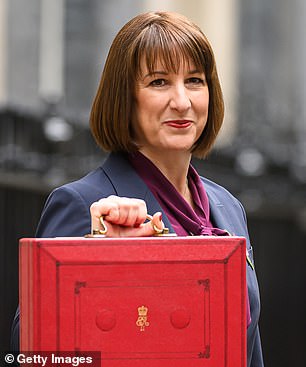
Tough choices: Chancellor Rachel Reeves
Motorists who drive the vast majority of cars were spared a tax hike this week when Chancellor Rachel Reeves kept the fuel tax freeze in place.
But the real devil, as always, is in the broader details.
The RAC’s Simon Williams said: ‘Drivers will breathe a sigh of relief after speculation that the 5p cut would be scrapped while increasing excise duty above the long-term rate of 57.95p.
Eight in ten drivers tell us they are dependent on their vehicle, while 70 percent of commuters living in rural areas have no viable alternative to getting to work other than taking their car.”
He added: ‘It is also worth remembering that even today, 56 percent of the total price of a liter of petrol is already taxable in the form of fuel duty and the VAT charged on top of it.’
CARS AND MOTORCYCLES: ON TEST
-
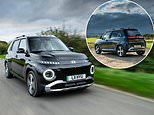 Hyundai Inster review: Is this the affordable EV we’ve been waiting for?
Hyundai Inster review: Is this the affordable EV we’ve been waiting for? -
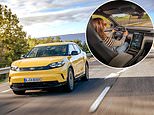 The most controversial new car of 2024: we drive the Ford Capri EV
The most controversial new car of 2024: we drive the Ford Capri EV -
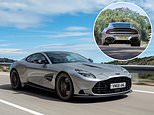 Aston Martin Vanquish: Britain’s new brute of a road-tested sports car
Aston Martin Vanquish: Britain’s new brute of a road-tested sports car -
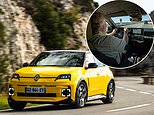 Renault 5 EV: can it reproduce the character and charm of the original?
Renault 5 EV: can it reproduce the character and charm of the original? -
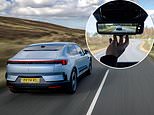 Polestar 4 EV: the first car sold in Britain WITHOUT a rear window
Polestar 4 EV: the first car sold in Britain WITHOUT a rear window -
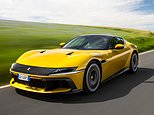 We take our place behind the wheel of Ferrari’s stunning new £336k 12Cilindri GT car
We take our place behind the wheel of Ferrari’s stunning new £336k 12Cilindri GT car -
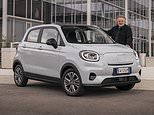 China’s new sub-£16,000 electric car: Leapmotor T03 arrives in Britain at a low price
China’s new sub-£16,000 electric car: Leapmotor T03 arrives in Britain at a low price -
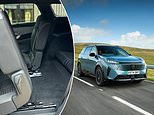 Peugeot E-5008: Is the £49,000 SUV the choice for eco-conscious families?
Peugeot E-5008: Is the £49,000 SUV the choice for eco-conscious families? -
 Ducati’s new £30,000 Panigale V4 S costs the same as a small Mercedes
Ducati’s new £30,000 Panigale V4 S costs the same as a small Mercedes -
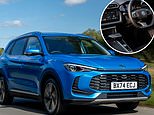 Is the new £22k MG ZS hybrid family-friendly SUV a real bargain?
Is the new £22k MG ZS hybrid family-friendly SUV a real bargain? -
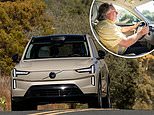 This £100,000 Volvo has led me to distraction: EX90 SUV driven
This £100,000 Volvo has led me to distraction: EX90 SUV driven -
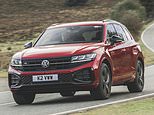 VW Touareg is a luxury SUV at a lower price – why is it so unpopular?
VW Touareg is a luxury SUV at a lower price – why is it so unpopular? -
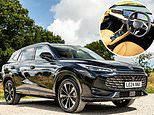 We test the new MG HS, Britain’s favorite budget-friendly family SUV
We test the new MG HS, Britain’s favorite budget-friendly family SUV -
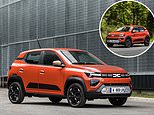 We test drive the £15,000 Dacia Spring, the UK’s CHEAPEST new EV
We test drive the £15,000 Dacia Spring, the UK’s CHEAPEST new EV -
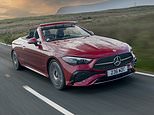 Suitable for British climates: you can enjoy the Mercedes CLE Convertible all year round
Suitable for British climates: you can enjoy the Mercedes CLE Convertible all year round -
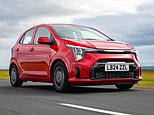 Kia’s affordable Picanto offers a fun and smooth ride around the big city
Kia’s affordable Picanto offers a fun and smooth ride around the big city -
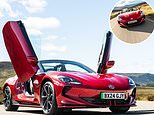 MG Cyberster review – convertible EV costs £60,000 and is fun to drive
MG Cyberster review – convertible EV costs £60,000 and is fun to drive -
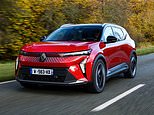 The ‘Euro’-winning Renault Scenic E-Tech is voiced by Ray Massey
The ‘Euro’-winning Renault Scenic E-Tech is voiced by Ray Massey -
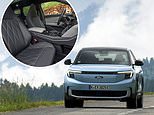 Ford Explorer: is the £40,000 electric SUV a good buy for British drivers?
Ford Explorer: is the £40,000 electric SUV a good buy for British drivers? -
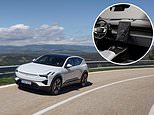 Polestar 3: Is the Tesla Model Y now in for a real fight?
Polestar 3: Is the Tesla Model Y now in for a real fight? -
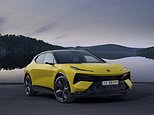 Lotus Eletre is an EV Lamborghini Urus rival: the hyper SUV tested
Lotus Eletre is an EV Lamborghini Urus rival: the hyper SUV tested -
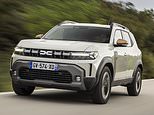 Dacia’s new Duster is here: has it lost its value-for-money appeal?
Dacia’s new Duster is here: has it lost its value-for-money appeal? -
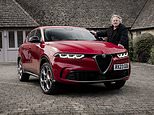 Alfa Romeo Tonale review: Can this SUV provide some sporty excitement?
Alfa Romeo Tonale review: Can this SUV provide some sporty excitement? -
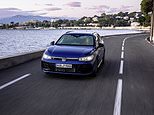 In a world full of SUVs, can the VW Passat revive the station wagon market?
In a world full of SUVs, can the VW Passat revive the station wagon market? -
 Ineos Quartermaster review: the new premium pick-up truck in town
Ineos Quartermaster review: the new premium pick-up truck in town -
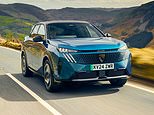 The Peugeot e-3008 is attractive, lively and has a range of 526 kilometers
The Peugeot e-3008 is attractive, lively and has a range of 526 kilometers -
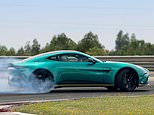 New £165,000 Aston Martin Vantage tested: is it better than a Ferrari?
New £165,000 Aston Martin Vantage tested: is it better than a Ferrari? -
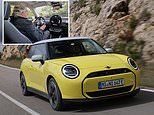 Can BMW harness the magic of the original Mini in an EV made in China?
Can BMW harness the magic of the original Mini in an EV made in China? -
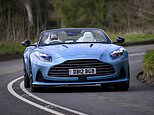 Is this the ultimate open-top supertourer? Aston Martin DB12 Volante
Is this the ultimate open-top supertourer? Aston Martin DB12 Volante -
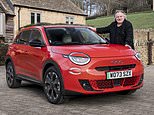 The new Fiat 600e EV family car is here, but should you wait for the hybrid?
The new Fiat 600e EV family car is here, but should you wait for the hybrid? -
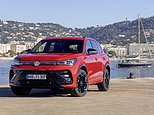 VW Tiguan review: The brand’s best-selling SUV is back – but is it better?
VW Tiguan review: The brand’s best-selling SUV is back – but is it better? -
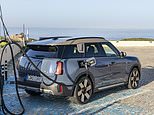 Should you consider the Mini Countryman EV over the petrol?
Should you consider the Mini Countryman EV over the petrol? -
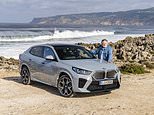 Another BMW goes electric – we test the new iX2 versus its petrol rival X2
Another BMW goes electric – we test the new iX2 versus its petrol rival X2 -
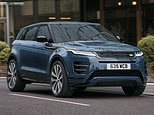 The 2024 Range Rover Evoque plug-in hybrid is a homegrown winner
The 2024 Range Rover Evoque plug-in hybrid is a homegrown winner -
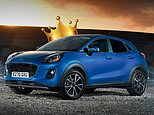 Britain’s favorite car DRIVEN – we review the best-selling Ford Puma
Britain’s favorite car DRIVEN – we review the best-selling Ford Puma -
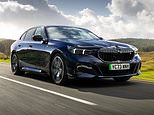 BMW’s i5 EV offers supercar performance in a luxury sedan package
BMW’s i5 EV offers supercar performance in a luxury sedan package -
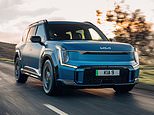 We drive the £76,000 Kia EV9, Korea’s all-electric Range Rover rival
We drive the £76,000 Kia EV9, Korea’s all-electric Range Rover rival -
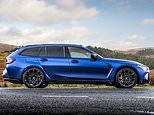 Was the BMW M3 Touring worth the three-decade wait? Our review
Was the BMW M3 Touring worth the three-decade wait? Our review -
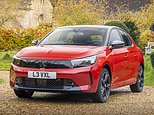 Has Britain’s most popular small car just got much better? New Corsa
Has Britain’s most popular small car just got much better? New Corsa -
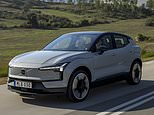 Volvo EX30 review: Sweden’s new ‘green’ pocket rocket SUV, rivaling Tesla
Volvo EX30 review: Sweden’s new ‘green’ pocket rocket SUV, rivaling Tesla -
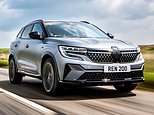 Is Renault’s new Austral E-Tech SUV the complete package? We drive it
Is Renault’s new Austral E-Tech SUV the complete package? We drive it -
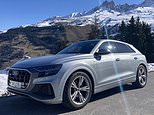 The Audi Q8 is annoyingly good for a ‘sporty’ coupe-style SUV
The Audi Q8 is annoyingly good for a ‘sporty’ coupe-style SUV -
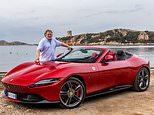 Ferrari Roma Spider costs £210,000 – this is what you get for your money
Ferrari Roma Spider costs £210,000 – this is what you get for your money -
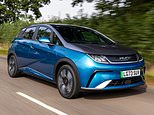 China’s all-electric BYD Dolphin makes landfall – we test it on UK roads
China’s all-electric BYD Dolphin makes landfall – we test it on UK roads -
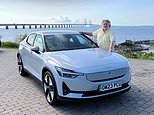 Our epic test drive through Denmark and Sweden in the new Polestar 2
Our epic test drive through Denmark and Sweden in the new Polestar 2 -
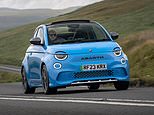 The new Abarth 500e convertible is a rare treat: it is electric and sporty
The new Abarth 500e convertible is a rare treat: it is electric and sporty -
 Honda’s new CR-V is bigger than its predecessor, but is it better?
Honda’s new CR-V is bigger than its predecessor, but is it better? -
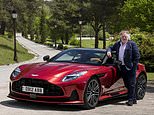 We beat the new Bond to test his new car: Aston Martin DB12 review
We beat the new Bond to test his new car: Aston Martin DB12 review -
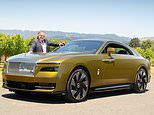 Behind the wheel of Rolls-Royce’s Spectre: we test the new EV Roller
Behind the wheel of Rolls-Royce’s Spectre: we test the new EV Roller -
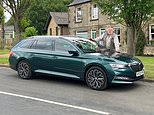 The crowning glory of Skoda’s work: Beautiful L&K 4×4 Estate with extras
The crowning glory of Skoda’s work: Beautiful L&K 4×4 Estate with extras -
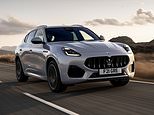 Maserati Grecale test – the SUV whose 50% of sales are expected to be for women
Maserati Grecale test – the SUV whose 50% of sales are expected to be for women -
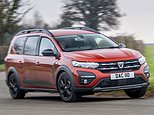 Dacia’s budget family car with seven seats! The £18,000 Jogger tested
Dacia’s budget family car with seven seats! The £18,000 Jogger tested -
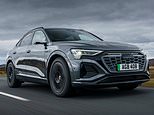 This Q8 is simply great: we take Audi’s new Sportback e-tron for a drive
This Q8 is simply great: we take Audi’s new Sportback e-tron for a drive -
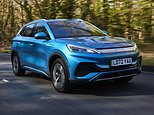 Enter the Dragon! BYD Atto EV is the first British model from the Chinese company
Enter the Dragon! BYD Atto EV is the first British model from the Chinese company -
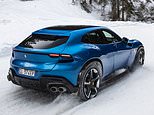 Ferrari’s first four-door family car: new £313,000 Purosangue, driven
Ferrari’s first four-door family car: new £313,000 Purosangue, driven -
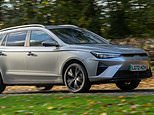 No-frills thrills: £31,000 MG5 is one of the cheapest family EVs
No-frills thrills: £31,000 MG5 is one of the cheapest family EVs -
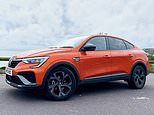 Renault’s Arkana ticks all the boxes of what car-buying Brits want
Renault’s Arkana ticks all the boxes of what car-buying Brits want -
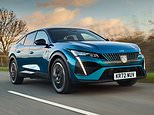 Can Peugeot’s chic 408 hybrid crossover be a hit in Britain? We test it
Can Peugeot’s chic 408 hybrid crossover be a hit in Britain? We test it -
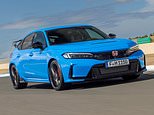 We’re driving the Civic Type R – the rebellious bad boy in Honda’s line-up
We’re driving the Civic Type R – the rebellious bad boy in Honda’s line-up -
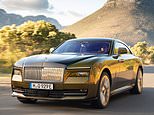 Rolls Royce Spectre: What is it like to drive the first ELECTRIC Roller?
Rolls Royce Spectre: What is it like to drive the first ELECTRIC Roller? -
 Ineos Grenadier driven: Sir Jim Ratcliffe’s £69,000 Defender
Ineos Grenadier driven: Sir Jim Ratcliffe’s £69,000 Defender -
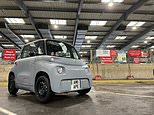 Can you really live with a small Citroen Ami? Seven tasks in seven days
Can you really live with a small Citroen Ami? Seven tasks in seven days -
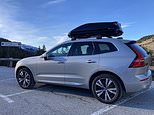 Don’t make me too big! Is the ‘smaller’ Volvo XC60 the SUV you need?
Don’t make me too big! Is the ‘smaller’ Volvo XC60 the SUV you need? -
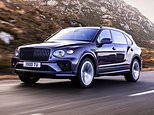 We’re treating some passengers to the new £211k Bentley Bentayga
We’re treating some passengers to the new £211k Bentley Bentayga -
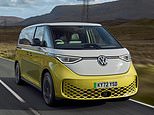 New kind of Buzz! VW’s electric MPV still feels like a hippie camper
New kind of Buzz! VW’s electric MPV still feels like a hippie camper
